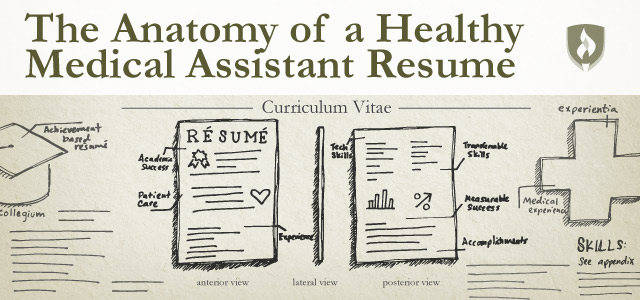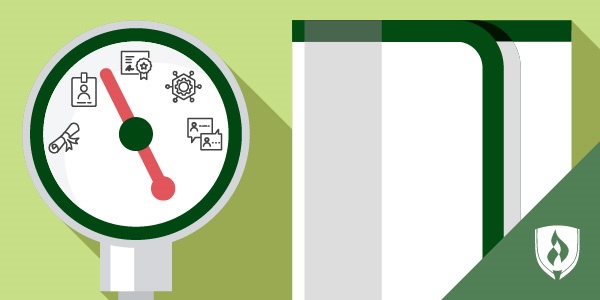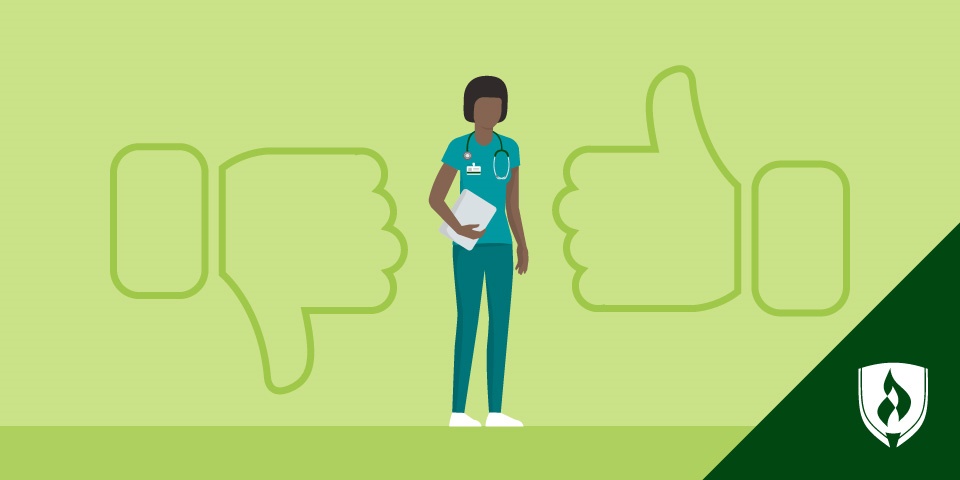
After months of balancing family and school, you’re finally graduating with your medical assisting diploma! You can’t wait to take the next step in transitioning your health sciences skills from the classroom to the clinic in your fulfilling new career.
But one thing is still putting a damper on your celebrations. You still need to find a medical assisting job. You’re confident that your program has given you all of the practical knowledge and hands-on skills you need to make an impact in the healthcare industry. But how can you show prospective employers that you’re qualified to be the next member of their team?
Your medical assistant resume can make a big impression on employers—if you know which skills and experiences to highlight. We spoke with hiring and resume experts to find out how you can make your medical assistant resume stand out from the crowd.
Use these tips to write the resume that will help you launch your rewarding career as a medical assistant!
How to organize your medical assistant resume
It’s not just the content of your resume that matters but how you present it. Recruiters see piles of resumes every day. Make yours stand out by organizing your experience in a way that truly highlights your skills and abilities.
Think outside of the box. Try writing an achievement-based resume instead of a chronological list of past experiences, recommends Cachet Prescott, career coach and consultant at Career Cachet. Use the ‘challenge-action-result’ format by asking yourself these questions: What was the challenge? What actions did you take? What was the result?
This format brings your accomplishments to life “so employers can actually see your skills in action,” Prescott says. This is your chance to show employers how you could benefit their team!
You also want to highlight your most important skills at the top of your resume, according to Joclyn Rainville, career services advisor at Rasmussen College. She suggests creating a “key skills” box to emphasize them to recruiters who are skimming your resume.
Skills worth highlighting
Which skills are best to include at the top of your resume? We used real-time job analysis software from Burning-Glass.com to examine nearly 89,000 medical assistant jobs posted over the past year.* This data helped us identify the most desirable technical and transferable skills employers are seeking:
| Technical skills | Transferable skills |
|---|---|
| Patient care | Communication |
| Vital signs measurement | Customer service |
| Performing injections | Detail oriented |
| Phlebotomy | Problem solving |
| Electrocardiogram (EKG) | Empathy |
The key to showing off your stellar skills is sharing the details and being specific, according to Joseph Terach, CEO of Resume Deli. Rather than listing ‘completed administrative tasks’ or ‘recorded vital signs’, he suggests including how many patients you worked with per day, the types of software you used and what you did to improve the delivery of clinical services.
The experiences employers are looking for
Every solid resume includes real-world experience that proves you have what it takes to handle your job outside the classroom. Be sure to list any relevant field experience, from internships and part-time jobs to volunteer work.
Your best bet is to gain work experience—especially in patient care—while completing your program, Rainville recommends. But if that ship has already sailed, don’t worry. There are still plenty of ways to prove you’re qualified for the job.
“If you don’t have an internship under your belt, think about class-based projects you worked on where you may have added value or made a suggestion that would also have application in the real world,” says Terach.
You also want to highlight experiences that show off your customer service skills. “Medical assistants are the face of the clinic. Employers want to know you can effectively communicate with patients and make them feel comfortable at all times,” says Rainville.
Remember, it’s not just about your past jobs; it’s about what you’ve accomplished at your past jobs. If you had any sort of positive impact on your previous workplaces—such as making administrative processes more efficient, or improving the patient admission process—now is the time to highlight it.
“If you did something of value, it should be on your resume, even if you were only a small contributor,” says Terach.
The finishing touches to make your resume shine
Your resume is almost ready to submit to prospective employers. Adding these small details can make your resume really stand out from the crowd.
Academic achievements
Academic achievements aren’t everything, but they may give you a leg-up if there’s stiff competition for a job. Include your GPA if it’s 3.5 or higher, and don’t forget to mention your CMA credential once you’ve acquired it, Rainville suggests.
Measureable success
Look back at the accomplishments you listed on your resume. If they sound too vague, find a way to quantify your achievements if possible, Prescott advises. Did your actions result in a 23 percent increase in patient retention, or reduce patient wait time by an average of five minutes? Measurable accomplishments instantly grab the attention of employers who are looking for ways you can improve their organization.
Put patient care at the heart of your resume
Your job as a medical assistant is to put patients first. If you can carry that same attitude into your resume, you’ll make an impression with the recruiter.
“Anything you can do to highlight your ability to show you are patient-care focused will help you in accomplishing an interview,” Rainville says.
Land your new career as a medical assistant
You have the skills, experience and diploma to prove you’re ready for the world of medical assisting. Now that you know how to write a stand-out medical assistant resume, you’re one step closer to celebrating your new job!
Not sure which healthcare setting you’d like to work in? Learn more about the various work environments for medical assistants.
*Burning-Glass.com (analysis of 88,883 medical assistant job postings, Sep. 01 – Aug. 31)




